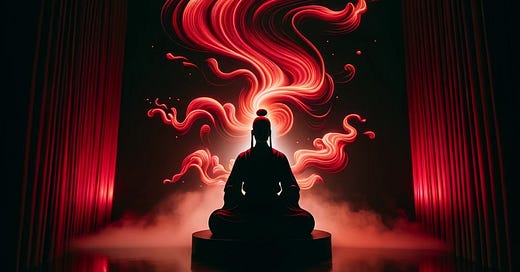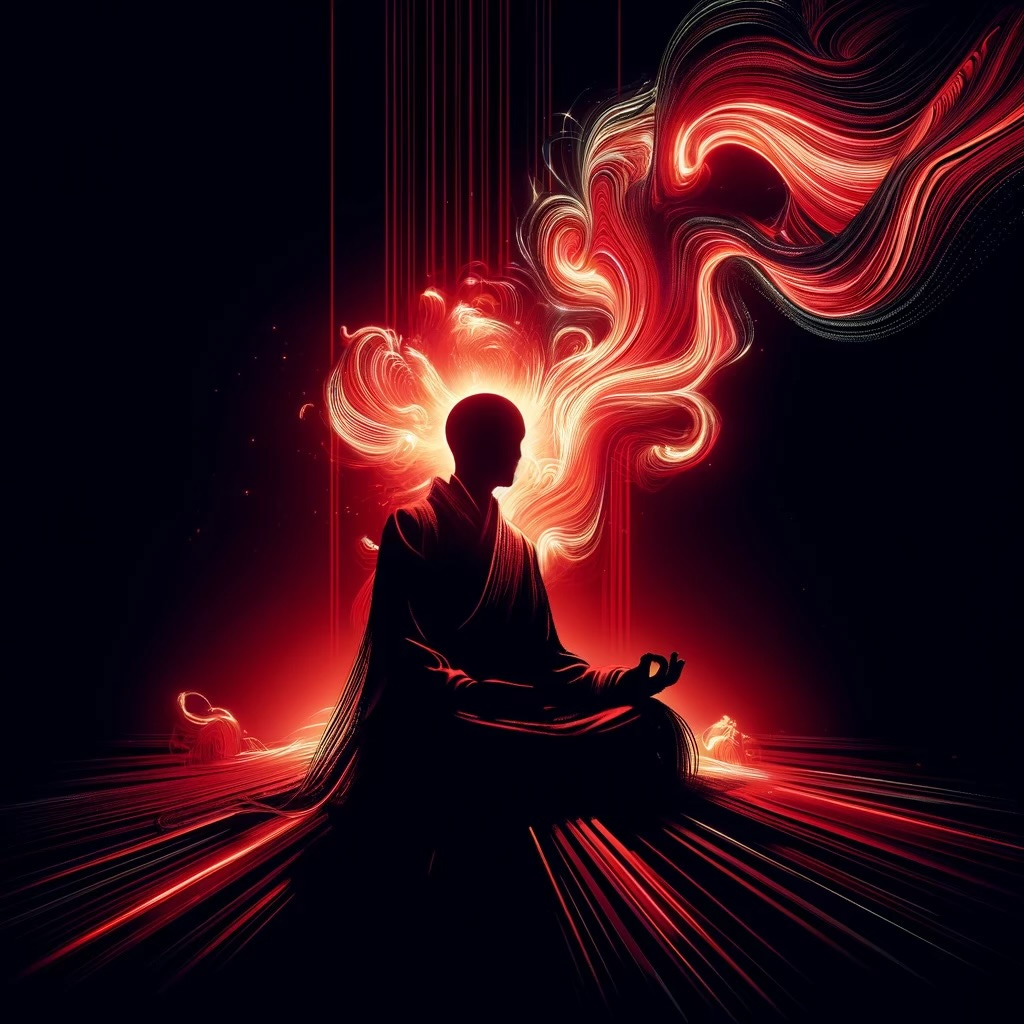In the dim light of early dawn, when the world awakens from the embrace of night, there lies a moment of serene stillness—a moment where the essence of existence whispers softly to those who listen.
This morning, I enjoyed one of those moments in the quiet embrace of my meditation practice — a time where I let go and allow myself to simply be still without intentional thought.
This whisper is the heart of Wu Wei, the Taoist principle of effortless action, championed by the sage Zhuangzi. It is in this whisper that we find the true meaning of naturalness, a state of being that transcends the limitations of learned knowledge and resides in the realm of innate peace.
Zhuangzi, with his poetic eloquence, invites us to consider a life unburdened by the rigid structures of human understanding. He beckons us to let go of the constructs that bind our thoughts and actions, urging us to embrace a more harmonious way of living—one that flows effortlessly with the rhythms of nature.
In this vision, Wu Wei is not about inaction, but about action that arises naturally, without force or struggle, like water finding its path down a mountain stream.
To give up all forms of knowledge, as Zhuangzi suggests, is to recognize the limitations of our intellectual pursuits. Knowledge, in its conventional sense, often creates barriers between us and the world. It categorizes, judges, and confines, turning the boundless expanse of existence into a series of compartments.
But life, in its raw and unfiltered form, is beyond such constraints. It is a dance of infinite possibilities, a symphony that can only be appreciated when we allow ourselves to be a part of its flow.
Faith, in this context, is not a blind belief but a profound trust in the natural order of things. It is the faith of a bird that trusts its wings, or a tree that trusts its roots. This faith does not require empirical evidence or rational justification; it is an intrinsic knowing, a deep-seated conviction that the universe, in its infinite wisdom, unfolds exactly as it should.
To live in accordance with this faith is to align ourselves with the Tao, the fundamental essence that permeates all things.
In the embrace of Wu Wei, we find a liberation that is both subtle and profound. It is the freedom to move through life with grace and ease, to act without premeditation, and to respond to the world with spontaneity and authenticity.
This naturalness is not a skill to be mastered but a state of being to be remembered—a return to our original nature, untainted by the complexities of societal conditioning.
Zhuangzi's vision of Wu Wei challenges us to reconsider our relationship with knowledge and faith. It invites us to step beyond the confines of our intellect and to reconnect with the intuitive wisdom that lies within us. It is a call to surrender to the flow of life, to trust in the unfolding of each moment, and to find harmony in the dance of existence.
In the end, Wu Wei is not an abstract concept but a lived experience. It is the effortless grace of a leaf drifting on the wind, the quiet strength of a river carving its way through rock, and the serene presence of a sage who has found peace within himself.
It is an invitation to embrace the naturalness of our own being, to live with faith in the unseen currents that guide us, and to discover the profound beauty of a life lived in effortless harmony with the Tao.
The Chocolate Taoist is a reader-supported publication. To receive my weekly reflections and aid my independent writing journey, please consider becoming a subscriber or member supporter.
Every little bit counts.
PS: My book is set to release on September 1, 2024. A free copy will be sent to all paid member supporters.






This is brilliant Diamond. So few other Taoists pay any attention to Zhuangzi. Thanks